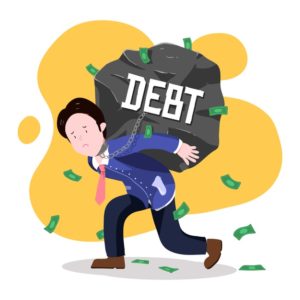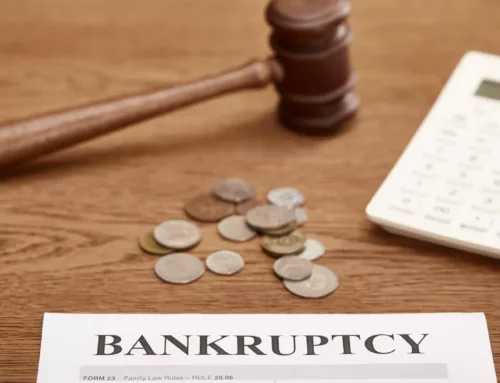Struggling with debt can be burdensome and overwhelming. Sometimes declaring bankruptcy is the best solution. However, financial circumstances vary from person-to-person, and the process of filing for bankruptcy can be complex. To help you with your decision in declaring bankruptcy, we have prepared a list of the pros and cons of filing for bankruptcy.
Advantages of Filing for Bankruptcy
1. Automatic Stay – in the federal bankruptcy law, an automatic stay is an automatic injunction that halts actions by creditors, collection agencies, government entities, or individuals to collect debts from a debtor who has declared bankruptcy (with certain exceptions). However, it doesn’t cancel debts; debt collection proceedings are only suspended until the bankruptcy case is finished or until the stay gets lifted. Once a bankruptcy petition is filed, the stay begins and prevents any debt collection activity which includes:
- Debt collection letters or calls from debt collectors
- Lawsuit cases on your debts
- Wage garnishments
- House or property foreclosures
- Repossession of property
If a creditor or lender tries to forcibly collect debts from you after your automatic stay is granted by the court, contempt of court action can be filed against them by your bankruptcy lawyer. Meaning, the court can prevent their collection attempts, let them pay a fine, and/or make them pay damages.
It is important to note, however, that an automatic stay can’t stop the following:
- Government tax audits
- Criminal charges and proceedings
- Establishing paternity
- Establishment, modification, or collection of child support and/or alimony
- Debt collection from your co-signers or co-debtors (in a chapter 7 bankruptcy)
Also, if you’ve once filed for bankruptcy within the past year, you can file a petition in court to extend the automatic stay. Note, however, that if you file for bankruptcy more than once in a year, the automatic stay lasts only 30 days or in some cases doesn’t kick in at all, unless an order is issued from the court.

- Credit card balances
- Medical bills
- Personal loans made by family, friends, etc.
- Past-due utility bills
3. Exempt properties – bankruptcy exemption laws allow you to keep ownership of a portion of your properties after bankruptcy. When a property is exempted, it can no longer be seized by a creditor.
4. Credit score – it is true that once you filed for bankruptcy, it could remain on your record for 7-10 years. However, rebuilding credit isn’t impossible. Once the bankruptcy process is over, you can start improving your credit scores. Once your dischargeable debts are canceled, you can have a fresh start and rebuild your credit.
Disadvantages of Filing for Bankruptcy
- Credit card confiscation – when you file bankruptcy, your credit cards automatically get canceled by credit card companies. You might get a lot of offers for “unsecured” credit cards during bankruptcy, and these might help rebuild your credit. However, these usually charge high-interest rates and annual payment fees.
- Immediate negative impact on credit score – there are different types of bankruptcies and different bankruptcy laws apply to these. For a Chapter 7 bankruptcy, it could stay on your credit report for up to 10 years and up to 7 years for Chapter 13.
- Hardships in applying for a mortgage or a loan – bankruptcy can make it hard for you to get a new loan or mortgage for years.
- Loss of real estate assets and properties – sometimes personal properties and real estate won’t qualify as an exemption. Meaning, your assets could be seized by the bankruptcy court to pay creditors.
- Tax refunds denial – once you declare bankruptcy, you could be denied local, state, and federal tax refunds.
- Non-dischargeable debts – some debts can’t be discharged in bankruptcy; these debts could include child support and alimony, student loan debts, and criminal fines and restitution.
There are a lot of things to consider before filing for bankruptcy, and these advantages and disadvantages can vary based on your financial circumstances and the many factors that could affect these.
If you are considering filing for bankruptcy, we are here to help. Call one of our experienced bankruptcy lawyers at Hammerschmidt, Stickradt & Associates P.C. today at 248-600-4536 for a free consultation.



